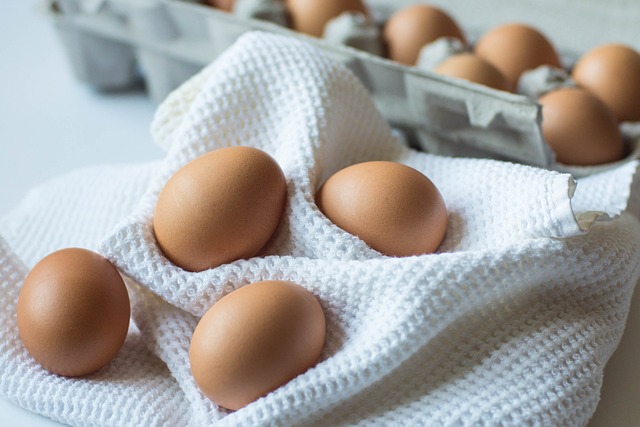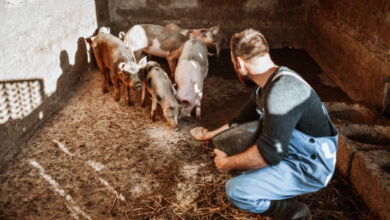
How to Wash Farm Fresh Eggs: A Step-by-Step Guide
There’s nothing quite like collecting fresh eggs from your own backyard chickens, but knowing how to properly wash them is essential for safety and quality. Washing farm fresh eggs the right way can prevent contamination and ensure they stay fresh longer. In this guide, we’ll walk you through the best practices for washing farm fresh eggs, so you can enjoy them safely and deliciously.
Step-by-Step Guide to Washing Farm Fresh Eggs
Step 1: Inspecting the Eggs
Before washing, inspect each egg for cracks or damage. Discard any that are cracked or broken, as they can harbor bacteria more easily.
Step 2: Rinsing with Warm Water
Rinse the eggs under warm running water. The water should be warmer than the egg to prevent the egg from drawing in contaminants through its pores.
Step 3: Using Mild Detergent
If needed, use a mild detergent to gently scrub the eggs with your hands or a soft brush. Ensure all dirt and debris are removed without scrubbing too hard.
Step 4: Drying the Eggs
Place the washed eggs on a clean towel and gently pat them dry. Make sure they are completely dry before storing them to prevent mold growth.
Avoiding Hot Water
Never use hot water to wash your eggs, as it can cause the egg to expand and draw in bacteria through the shell.
Gentle Scrubbing Techniques
When scrubbing eggs, be gentle to avoid damaging the eggshell. Damaged shells can compromise the egg’s integrity and safety.
Proper Drying Methods
Ensure eggs are thoroughly dried after washing. Moisture left on the eggs can encourage bacterial growth and reduce shelf life.
Materials Needed for Washing Farm Fresh Eggs
Mild Detergent
Choose a mild, food-safe detergent to avoid harsh chemicals that could seep through the eggshell.
Warm Water
Use warm water to wash the eggs. The warmth helps loosen dirt and bacteria from the shell.
Clean Towels
Have clean, lint-free towels ready for drying the eggs after washing.
Egg Brushes (Optional)
Soft egg brushes can help remove stubborn dirt without damaging the eggshell.
Choosing the Right Detergent
Select a detergent that is gentle and free from strong chemicals. Many people use a diluted vinegar solution as a natural alternative.
The Importance of Clean Water
Always use clean, warm water to avoid introducing new contaminants to the eggs during washing.
Why Washing Farm Fresh Eggs is Important
Preventing Contamination
When eggs are laid, they have a protective coating called the bloom or cuticle, which helps keep bacteria out. However, dirt and bacteria can still cling to the eggshell. Washing eggs can remove these contaminants, reducing the risk of foodborne illnesses.
Extending Shelf Life
Properly washing eggs can help extend their shelf life by removing dirt and bacteria that could cause spoilage. Clean eggs are less likely to harbor bacteria that can lead to quicker degradation.
Maintaining Egg Quality
Clean eggs are more appealing and safer to eat. By washing your eggs properly, you ensure they maintain their quality and taste, making them more enjoyable to consume.
The Risks of Not Washing Eggs
Failing to wash eggs can lead to the ingestion of harmful bacteria such as Salmonella. These bacteria can cause serious health issues, particularly in vulnerable populations like children, the elderly, and those with compromised immune systems.
The Benefits of Clean Eggs
Clean eggs are not only safer but also look better and can be more pleasant to handle and cook with. Removing dirt and debris ensures your eggs are as fresh and appealing as possible.
YOU MAY LOVE TO READ
How Long Do Farm Fresh Eggs Last in the Fridge?
How Long Can Farm Fresh Eggs Sit Out? A Comprehensive Guide
How to Farm Vanguard Engrams Efficiently in Destiny 2: A Complete Guide
Common Mistakes to Avoid When Washing Farm Fresh Eggs
Using Hot Water
Hot water can cause the egg to expand and draw in bacteria through its porous shell. Always use warm, not hot, water.
Scrubbing Too Hard
Scrubbing too hard can damage the eggshell, making it easier for bacteria to penetrate. Use gentle motions and a soft brush if needed.
Not Drying Properly
Failing to dry eggs properly can lead to mold growth. Make sure eggs are completely dry before storing them.
Conclusion
Washing farm fresh eggs properly is crucial for ensuring they are safe and delicious. By following these steps, you can enjoy your eggs with peace of mind. Remember, taking a little extra time to clean your eggs can make a big difference in their quality and safety. Have your own tips for washing fresh eggs? Share them in the comments below! And don’t forget to check out our other posts on backyard farming and chicken care.




